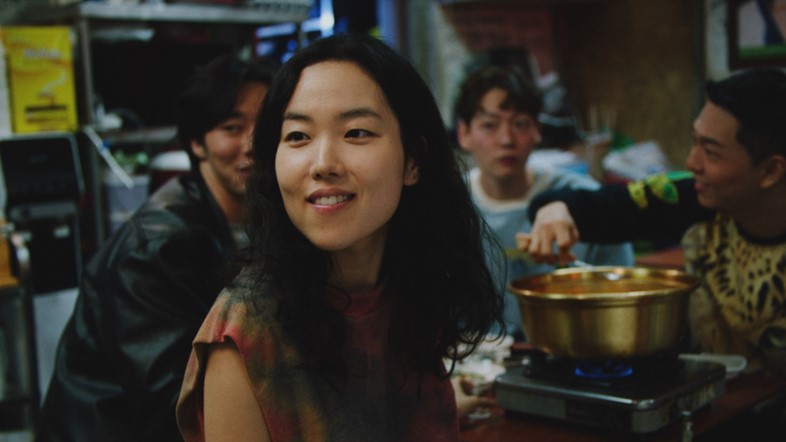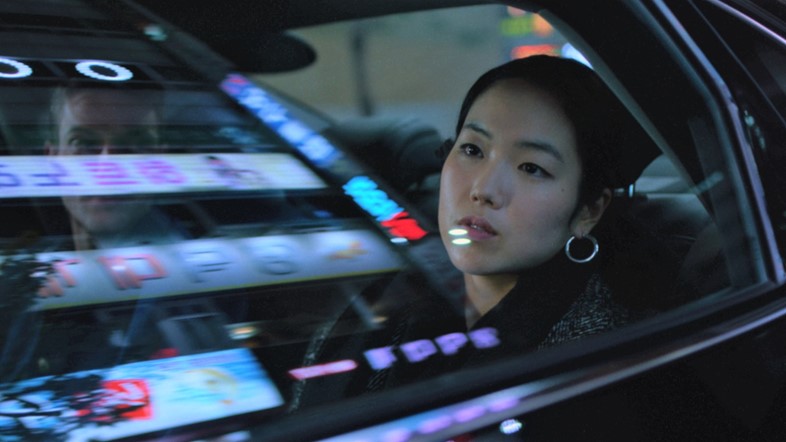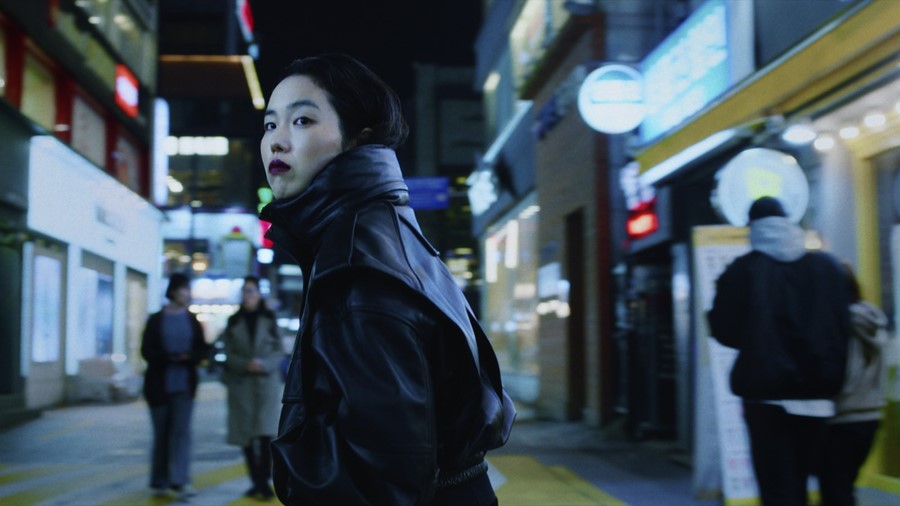“When you see the title of the film, you might expect that kind of postcard image of Korea,” says Davy Chou of Return to Seoul. “That’s not the kind of film I wanted to make”
In 2011, while attending the Busan film festival in Korea to promote his film Golden Slumbers, Cambodian-French filmmaker Davy Chou ended up sidetracked on an unplanned trip with a friend. “She had texted her father and was going to meet him the day after,” he remembers. “Did I want to go with her?” A bus drive later, Chou and his friend – an adoptee who had only twice before met her biological father – arrived in the small town of Jinju, and headed to a restaurant to meet Dad. Chou expected a scene plucked straight out of the movies: tears, stories, closure. Instead, his companion turned to their translator: “Tell my father to stop sending me messages. He’s not my father anymore.”
After years spent mulling over this “shocking” interaction, Chou turned this scenario into a film, Return to Seoul, in cinemas now after receiving its UK premiere at the London Korean Film Festival in November. It comes a year after the film debuted to wide acclaim at Cannes, where it was nominated for the Un Certain Regard; months later, it made the December shortlist for the Oscars’ best international feature film competition. Speaking to AnOther over coffee in London, Chou is animated in his recollections of the production’s development. The enthusiasm is warranted; the finished film is one of the most striking arthouse features of the year.
Return to Seoul is the story of a French-Korean adoptee named Freddie, a defiant and self-assured young woman who revels in a hedonistic and promiscuous lifestyle during an impromptu visit to her motherland. Then, she decides to track down one of her birth parents. But in this crisp and nuanced character study, elevated by a naturalistic, almost documentarian filmmaking style, the Hollywood ending Chou had once imagined feels increasingly far-off and unlikely.
Many details from that profound interaction in 2011 made it into the final film over a decade later, from the food they ate (samgyetang, a traditional chicken soup and symbol for healthiness, a way through which Chou’s friend’s father had attempted to show that he cares) to a translator who “liquefied” upon being asked to relay blunt messages. These vivid moments help to strengthen the sense of verisimilitude that makes the film such a captivating viewing experience. But anchoring it all is bold and impulsive Freddie – portrayed with magnetic sophistication by debutant Park Ji-min – who hides a deep vulnerability behind her steely veneer, stemming from her abandonment as a child.
“Ji-min is a visual artist,” says Chou. “She never wanted to be an actress.” But after being introduced by a common friend (himself a Korean adoptee) in Paris, the director had been struck by how much Park’s life experiences mirrored Freddie’s. “She’d experienced that anger, pain, confusion and loss in her own life, so she knew the emotions that the character needed to go through to the extreme.” The director was sold, despite Park’s lack of training: “Her capacity for jumping into the fire and just being the emotion of the character,” he says, “made her the unique person who could play the role.”

It wasn’t an entirely fairytale casting process, though, and Chou recalls that accepting the role wasn’t so straightforward from Park’s perspective. A few months before shooting in June 2021 she raised questions over the details of the script and her character – about Freddie’s presentation and her relationships with others. “She suggested that there was a kind of male gaze aspect in the script that she felt uncomfortable with. It wasn’t an easy discussion at the beginning. But I understood that it was causing pain … and once we got through that moment that was when she really accepted the role.”
Partly as a result of her input, Freddie’s physical appearance was transformed in the second act of the film in order to better serve the character Park envisaged. “Originally, the costume of Freddie was maybe a cliche of the sexualised female Asian you see in so many films from male directors,” says Chou, namechecking films he loves like Millennium Mambo, and the works of Wong Kar-wai. As a result, her appearance was reconceived from scratch, resulting in the deep red lipstick and bulky leather trenchcoat look seen in the film’s poster. “She became that mix of Furiosa from Mad Max: Fury Road and Carrie-Anne Moss from The Matrix. All of this makes her a bit free, more of a warrior.”
That battle-ready nature is outlined immediately in the film’s opening. Set in a rundown bar, the scene finds patrons soaked in red and blue lights laughing over sizzling Korean barbecue as they pour green bottles of soju into clinking shot glasses. (“It’s really not that far from the real experience of being in Korea,” says Chou, likening the scenario to those seen in the films of Hong Sang-soo. Here, Freddie immediately rejects the traditional customs of drinking in Korea that her companion is attempting to educate her about. “She refuses to fit into the labels that people try to put on her,” says Chou. “She was born in that country, and she was rejected from that country. Through the apparent impoliteness and rudeness, there’s a kind of survival instinct.”

Thereafter, via closeted, close-quarters cinematography that makes great use of Korea’s underground restaurants, windowless bars and cavernous mega-clubs, Return to Seoul offers a rich metaphor for Freddie’s deep internal journey as she strives to create her own definition of herself. The copious neon lights, open highways, and phenomenal soundtrack – which pits Bauhaus’ goth-rock classic Bela Lugosi’s Dead (or, at least, a soundalike) against 1960s and 70s Korean rock gems like Shin Joong Hyun & the Men’s Beautiful Rivers and Mountains and Lee Jung Hwa’s Flower Petal – only elevate that journey. It all leads to a make-or-break moment at the climax, in which all the tensions harboured throughout the film come to the fore: “I don’t know where Ji-min found the force to go there,” Chou says. “But she did – on command, several times.”
In the end, Return to Seoul feels like a film that manifests the essence of that day in 2011 – the palpable sadness and anger shared between long-lost family, the frustrations and heavy silences that hung in the room. These facets are all distilled into a single character, with profound effectiveness: “I wanted to build out of her personality a film that would contradict the usual cliched narrative about the journey to the roots,” Chou says of Freddie. Because ultimately, this film is all about those subversions and contradictions: “When you see the title of the film, you might expect that kind of postcard image of Korea. That’s not the kind of film I wanted to make.”
Return to Seoul is out in UK cinemas now, and comes to MUBI on July 7.
